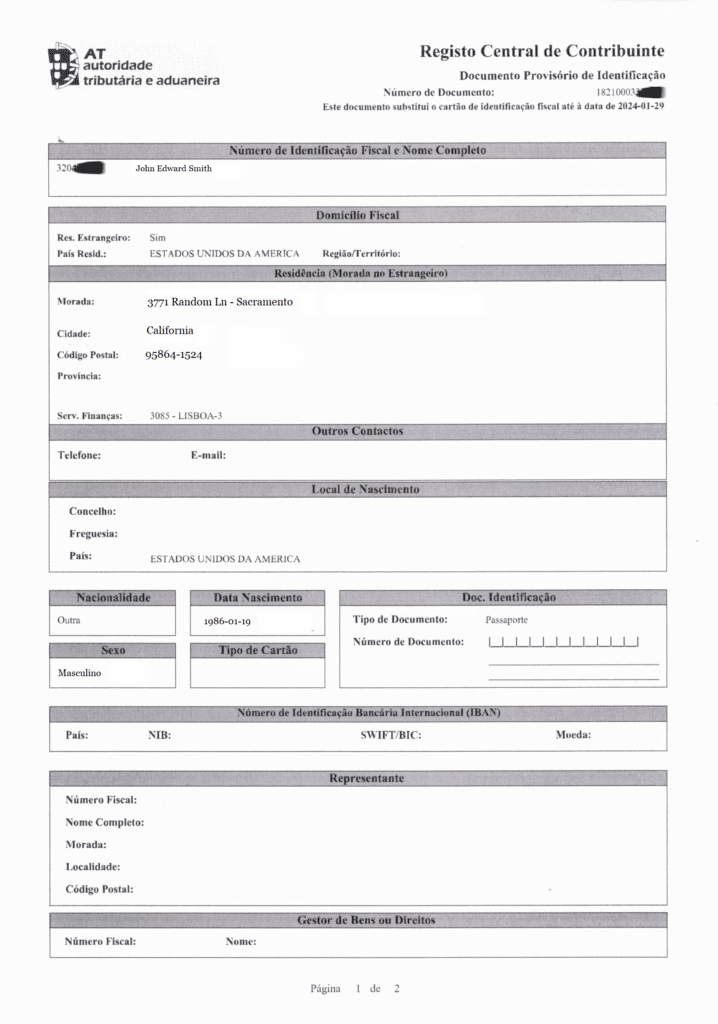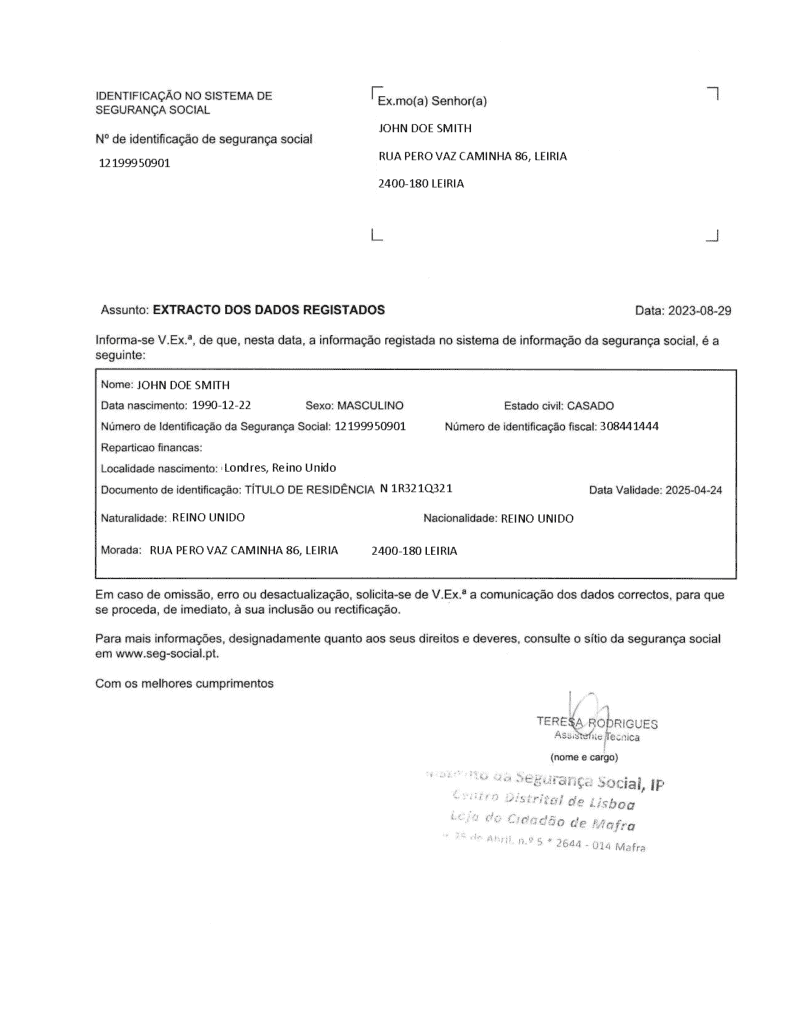How to buy property with crypto in Portugal?
Portugal has emerged as a haven for the global crypto community, thanks to its progressive policies and tax-friendly attitude towards cryptocurrencies.
The shift towards crypto began in the late 2010s, with Portugal offering a tax-free regime for individual cryptocurrency investors. In contrast to most European countries where crypto earnings are typically subject to capital gains tax, Portugal’s tax exemptions fostered a conducive environment for crypto investment to flourish.
In April 2022, Portugal introduced groundbreaking regulations allowing property purchases using cryptocurrency, revolutionizing real estate transactions.
In 2022 alone, Expresso reported that notaries recorded 13 property purchase and sale transactions in which digital assets, such as Bitcoin or Ethereum, were used as payment.
However, seven transactions were denied due to various reasons, including non-compliance with anti-money laundering regulations, insufficient technological expertise to complete the transaction, or uncertainty surrounding applicable tax laws.
“The numbers reflect that there are people willing to conduct business with cryptocurrencies in Portugal, but that there is also a lot of work to be done to have a clearer and more global legislative framework,”
Jorge Batista da Silva, head of the Order of Notaries, tells the Portuguese newspaper Expresso.
This guide explores these new rules, implications for investors, and offers insights into the future of real estate and cryptocurrency in Portugal.
Portugal’s Evolving Landscape: A Balanced Approach to Crypto
Portugal’s tax-friendly environment and flexible legal and regulatory framework have made it an attractive destination for crypto investors worldwide.
However, in 2023, Portugal revised its tax policies, showing its commitment to adapting to the evolving crypto space while maintaining a balanced approach to taxation.
While tax exemptions for long-term capital gains still exist, short-term capital gains from cryptocurrency trading and earnings from professional activities like mining are now taxable.
Despite these changes, Portugal continues fostering a supportive environment for digital asset investors and businesses.
Two Models for Crypto Real Estate Transactions
Two models have emerged for real estate negotiations involving cryptocurrencies in Portugal. The first involves converting the cryptocurrency into traditional currency, while the second engages in a direct exchange of cryptocurrencies, which is the focus of the new legislation.
Case Study 1: Two Luxury Properties in Madeira Sold for Cardano

In summer 2021, two luxury properties in Madeira Island were sold for a total of €4.1 million, with payments made in Cardano cryptocurrency.
This marked the first time luxury properties were acquired in Portugal using Cardano. Priyesh Patel, CEO of Prometheus International, the company behind the sales, mentioned that they were the first in Europe to accept a cryptocurrency payment for real estate.
Though the law hadn’t yet regulated cryptocurrency payments in 2021, these transactions still complied with the necessary legal requirements.
In this case, they used a workaround where the payment in cryptocurrency is converted to Euros before being deposited into a traditional bank account, specifically Millennium BCP bank.
The company used crypto-exchange accounts to receive the cryptocurrency payment, converted it into Euros, and then transfered the funds to their bank account.
This process allowed the buyer and seller to negotiate the amount in Euros, as required by law, while still enabling the buyer to make the payment using cryptocurrency.
The company provided the necessary proof of the transaction, such as agreement of sale, client details, and background, to ensure that the transaction is legitimate and compliant with the law.
Although the transaction involved cryptocurrency, the conversion to Euros and use of a traditional bank like Millennium BCP ensured that the transaction is conducted within the legal framework and satisfies the requirements of both parties.
Case Study 2: T3 Apartment in Braga Sold for 2.9 Bitcoins

In May 2022, a real estate agency in Portugal facilitated the sale of a T3 apartment in Braga with a payment of 2.9 Bitcoins. This transaction was enabled by recent legislative changes, which have provided a clear framework for property sales involving cryptocurrency.
At the time of the transaction, the 2.9 Bitcoins were valued at approximately €110,000. However, due to the volatile nature of Bitcoin, the seller may have incurred a loss in value if they didn’t promptly convert the cryptocurrency into fiat currency.
Representatives from various sectors, including Zome, the real estate firm; Antas da Cunha Ecija, a legal firm; the Chairman of Notaries; and partners from Crypto Valley Switzerland, a center for blockchain and cryptocurrency development, attended the signing of the deed for the apartment.
This highlighted the collaborative effort required to conduct such transactions and the potential for further cryptocurrency-related advancements in the real estate market.
The real estate company facilitated the transaction by partnering with a local cryptocurrency exchange, which handled the conversion of the cryptocurrency to Euros.
This partnership ensured that the transaction was compliant with the new regulations and offered the necessary support for the buyer and seller throughout the process.
How It Works: Cryptocurrency Property Purchase
In line with the new regulations, two models are primarily associated with real estate negotiations involving cryptocurrencies in Portugal.
1st model – Buyer’s broker converting the cryptocurrencies into traditional currency
The first and more straightforward method involves the buyer’s broker converting the cryptocurrencies into traditional currency. Once the transaction is confirmed and validated, the seller receives the proceeds in the local currency directly into their bank account. This model represents the conventional process that many businesses have been practicing over the years.
2nd model – direct exchange of cryptocurrencies to real estate
The second model, however, is more intricate and is the main focus of the recent legislation. This model engages in a direct exchange of cryptocurrencies.
In this case, the seller receives payment for the transaction directly in cryptocurrency.
This arrangement adds a layer of complexity, primarily when the funds exist exclusively in investment portfolios without broker custody, necessitating extra security and verification measures.
As per the new rules introduced in April 2022, notaries require a comprehensive set of documents from the parties participating in the transaction.
These documents comprise personal identification, a complete ledger detailing the acquisition of the crypto-assets, and specific information about the storage wallets involved in the transaction.
This collected data is then transferred to Portugal’s supervisory authorities – the DCIAP (Central Department of Investigation and Criminal Action) and the Financial Information Unit, ensuring a transparent and traceable transaction process.
For transactions exceeding EUR 200,000, there is an additional protocol.
Not only is there an extra stage of communication with authorities post the transaction completion, but notaries are also responsible for reporting the crypto-assets conversion value into a recognized currency. This step is crucial, considering the high volatility of cryptocurrencies.
The conversion is reported at two distinct points – firstly, during the signing of the promissory purchase agreement and then at the time of the final sale.
This reporting helps maintain a clear record of the transaction’s value in fiat currency at both the commencement and completion stages.
Investor Obligations and Transparency
When purchasing property in Portugal using cryptocurrency, investors must ensure transparency and compliance with anti-money laundering (AML) and anti-tax evasion regulations.
The ON has set strict guidelines for monitoring these transactions to prevent criminal activities, making it essential for investors to adhere to the requirements diligently.
Critical aspects of investor responsibilities include:
- Tracing the funds’ origin:To ensure the money’s legitimate source, investors must provide a clear trail of the funds involved in the transaction, from their bank account to the cryptocurrency asset.
- Providing wallet details: Investors must disclose their digital wallet number and any related information to establish the legitimacy of the assets used in the transaction.
- Identifying parties involved: All parties participating in the transaction must be identified, including the buyer, seller, and any intermediaries, to prevent potential fraud or other illicit activities.
- Verifying wallet transfers: Investors must confirm and validate the transfer of cryptocurrency assets from one wallet to another at the time of the transaction. This verification process serves as an additional layer of security to prevent potential misuse or misappropriation of funds.
- Maintaining transparency: Throughout the transaction, investors must maintain complete transparency, cooperating with the ON and other regulatory bodies to facilitate the process and ensure compliance with all legal requirements.
By complying with these guidelines, investors can contribute to a safe and secure environment for conducting real estate transactions using cryptocurrency.
This level of transparency helps minimize the risk of tax crimes and money laundering associated with digital currencies, reinforcing Portugal’s reputation as a crypto-friendly nation while protecting the integrity of its property market.
Education and Evolution
In response to the rapid evolution of cryptocurrency and its integration into mainstream financial transactions, the Order of Notaries (ON) recognizes the imperative need for notary officers to be proficient in this new technology and its associated implications. Hence, they have embarked on an initiative to foster learning and adaptation within their ranks.
The ON has launched a comprehensive training program tailored for notary officers.
This initiative aims to impart essential knowledge about the latest cryptocurrency landscape developments, focusing on its role in real estate transactions.
The curriculum is designed to provide a deep understanding of blockchain technology, the workings of various cryptocurrencies, and the legal and regulatory nuances that come into play when these digital assets are used for property transactions.
Beyond theoretical knowledge, the training program emphasizes practical skills, such as processing cryptocurrency-based transactions, managing digital wallets, and ensuring compliance with anti-money laundering and tax regulations.
The goal is to equip notary officers with the tools and expertise necessary to efficiently and confidently handle real estate transactions involving cryptocurrency.
This progressive approach underscores the ON’s commitment to staying abreast with the evolving world of financial technology.
By investing in the continuous learning and development of its notary officers, the ON ensures they are prepared to navigate the complexities of this emerging market and can provide the best service to their clients in this new era of digital transactions.
The Future of Crypto Real Estate in Portugal
These case studies exemplify the growing adoption of cryptocurrency for property transactions in Portugal. Before April 2022, real estate transactions involving cryptocurrency were enigmatic due to the absence of specific legislation.
However, the Order of Notaries (ON) introduced comprehensive regulations, providing clarity and efficiency to purchasing property via cryptocurrency.
These guidelines offer notaries explicit instructions on formulating property deeds related to cryptocurrency transactions, ensuring accurate documentation and legal protection for all parties involved.
This groundbreaking change allows real estate transactions to be executed using virtual currencies directly without converting into euros, effectively introducing a barter system where properties can be exchanged straight for cryptocurrencies such as Bitcoin or Ethereum.
This shift is expected to attract a new demographic of crypto-enthusiasts, offering them a unique investment strategy to leverage their digital assets to acquire physical properties, solidifying Portugal’s commitment to embracing the digital revolution and becoming a global leader in crypto-friendly regulations.
The intersection of cryptocurrency and real estate in Portugal is at the precipice of an exciting new era. As awareness of this novel investment opportunity broadens, Portugal is projected to witness a significant uptick in property transactions facilitated by cryptocurrency.
The recent legislative amendments have acted as a catalyst, paving the way for a more vibrant and dynamic market while providing much-needed clarity and security.
Real estate experts are optimistic about this burgeoning sector, anticipating a surge in demand and an influx of domestic and international investors attracted by the prospect of leveraging cryptocurrency for property purchases.
This fusion of cryptocurrency and real estate in Portugal undoubtedly represents a transformative shift in the country’s investment landscape.
As more transactions are made using cryptocurrency, Portugal could strengthen its position as a leading crypto-friendly nation, attracting further investment and innovation in the field of digital assets.
The future promises exciting developments as Portugal continues to explore and embrace the endless possibilities of digital currency in the real estate market.
Conclusion
In conclusion, Portugal’s progressive policies and tax-friendly environment have made it an attractive destination for cryptocurrency investors worldwide.
The recent legislative changes that allow real estate transactions using cryptocurrencies have further cemented Portugal’s position as a crypto-friendly nation.
The regulations provide clarity and efficiency to purchasing property via cryptocurrency, and the new era of digital transactions is set to attract a new demographic of crypto-enthusiasts.
The intersection of cryptocurrency and real estate in Portugal is at the forefront of a transformative shift in the country’s investment landscape.
As more transactions are made using cryptocurrency, Portugal could strengthen its position as a leading crypto-friendly nation, attracting further investment and innovation in the field of digital assets.
As Portugal continues to explore and embrace the endless possibilities of digital currency in the real estate market, the future promises exciting developments.
Frequently Asked Questions
Can I buy property in Portugal using cryptocurrency?
Yes, you can buy property in Portugal using cryptocurrency.
The Order of Notaries (ON) has introduced new regulations permitting real estate transactions to be executed using virtual currencies directly, without requiring conversion into euros.
What are the two models for real estate transactions involving cryptocurrencies in Portugal?
The two models associated with real estate transactions involving cryptocurrencies in Portugal are:
a) The buyer’s broker converts the cryptocurrencies into traditional currency, and the seller receives the proceeds in the local currency directly into their bank account.
b) The buyer and seller directly exchange cryptocurrencies, with the seller receiving payment for the transaction directly in cryptocurrency.
What are the investor obligations when purchasing property in Portugal using cryptocurrency?
Investors must ensure transparency and compliance with anti-money laundering (AML) and anti-tax evasion regulations.
Critical aspects of investor responsibilities include:
a) Tracing the funds’ origin. b) Providing wallet details. c) Identifying parties involved. d) Verifying wallet transfers. e) Maintaining transparency.
How is the Order of Notaries preparing notary officers for handling cryptocurrency-based real estate transactions?
The ON has launched a comprehensive training program tailored for notary officers, aiming to impart essential knowledge about the latest developments in the cryptocurrency landscape, particularly its role in real estate transactions.
The program focuses on providing a deep understanding of blockchain technology, cryptocurrencies, and the legal and regulatory nuances involved in property transactions.
Are there any specific protocols for transactions exceeding EUR 200,000?
Yes, for transactions exceeding EUR 200,000, there is an additional protocol.
Notaries must report the conversion value of the crypto-assets into a recognized currency at two distinct points – during the signing of the promissory purchase agreement and at the time of the final sale.
Additionally, there is an extra stage of communication with authorities post the transaction completion.
What was the first-ever crypto property purchase in Portugal?
Portugal’s first direct real estate transaction with cryptocurrency without converting into traditional euros occurred in May 2022.
An investor acquired a three-bedroom apartment in Braga, a vibrant city in the northern region of Portugal, using three bitcoins.





